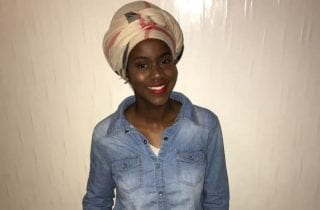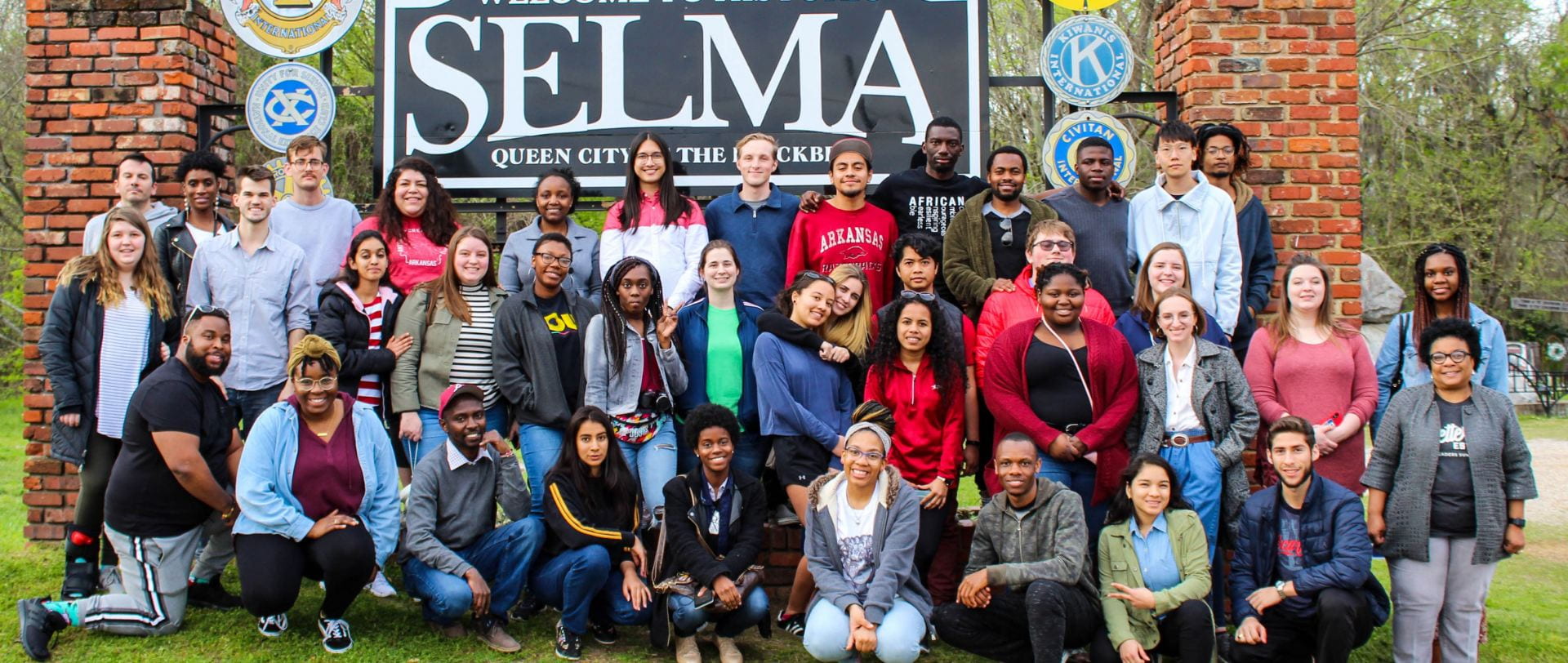
The University of Arkansas’ first Civil Rights Bus Tour this past Spring gave students the opportunity to explore the rich history of the legacies of the modern civil rights movement. The group of students and staff toured iconic sites in the Civil Rights movement, including Sixteenth Street Baptist Church in Birmingham, Alabama, the Edmund Pettus Bridge in Selma, Alabama, and other historical places.
Students applied to be part of the six-day bus tour, which happened during Spring Break this past Spring Semester. About 50 people were able to take the trip, and by their accounts it was a life-changing experience.
“Coming into the trip I knew this experience would connect with me on a different level because I am an African American woman. My grandparents grew up going to segregated schools in Arkansas. My grandmother attended Dunbar High School in Little Rock, Arkansas which was the high school for black students, and two generations later I attended Little Rock Central High School. I attended a school that my grandmother was denied access to at my age, but I never felt the full weight of that until I returned to my Alma Mater with the bus tour,” said Makayla Carr, a double major in English and African American Studies.
“I come from a fearless people who are fueled by self-determination and I am forever grateful for their sacrifices. Through this experience I have journeyed back to myself through the experiences of my ancestors. I hope that others, particularly African Americans, can experience this life changing trip,” Carr said.
For some, it was a realization of how they can modify their actions to better help other individuals. Megan Stewart, who attended the trip, explained how this experience will help her in interactions she has with other people.
“I need to be paying attention to the ways that prejudice still sneaks into everyday interactions that help inform the way things are done. I want to be an ally to minority groups that I am not a part of and I want to be a more aware member to the ones in which I belong,” Stewart said. “I don’t want to be someone that takes the ways that I am privileged for granted and use that privilege to only benefit myself.”
She mentioned that some people in her life do not understand the weight that the trip had on her or the hardships that many minority groups still face in the United States today.
“When I came home from the trip and was telling my dad about it… he kept coming back to the same response. …’but you have to remember how far we have come. Things are so much better.’ Maybe they are better, but better isn’t the same as good. Better isn’t the same as fair or just,” she said. “Better isn’t acceptable and better isn’t done.”
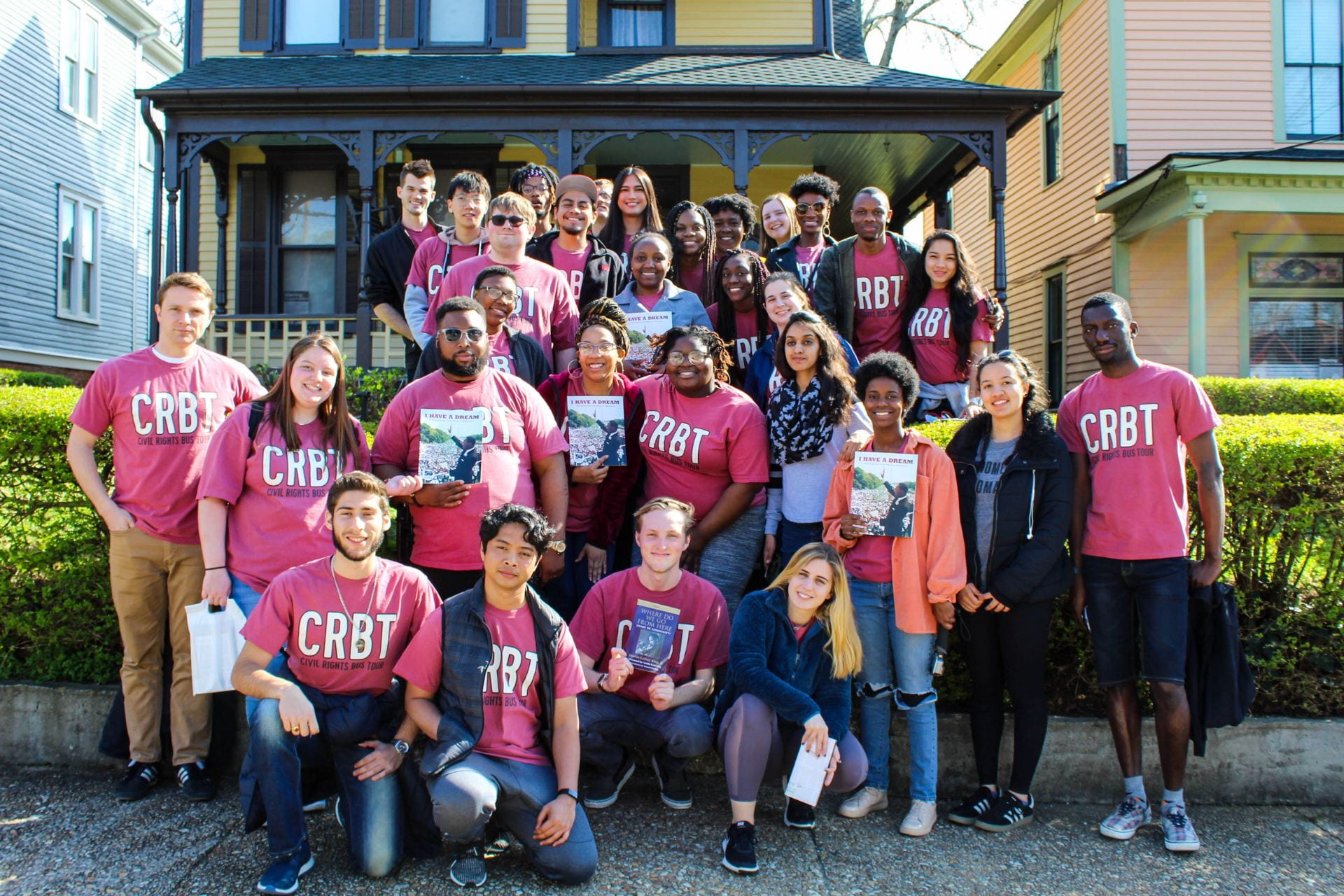
Maria Rainey, a senior studying business economics, explained that “as a black person myself, I thought I knew all there was to know about the Civil Rights Movement. I thought I was aware of all the struggles that black people and all persons of color faced in the past and that we currently face today. However, this is not true.”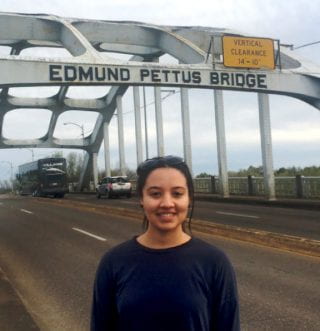
Stepping into in someone else’s shoes is always a tough thing to do, but even tougher when you feel that you were already in those shoes to begin with.
“This trip taught me that my knowledge of the Civil Rights Movement and the struggles of black people, both past and present, is extremely lacking and needs to be improved,” Rainey said.
The impact of the tour was equally felt by International students who went on the trip.
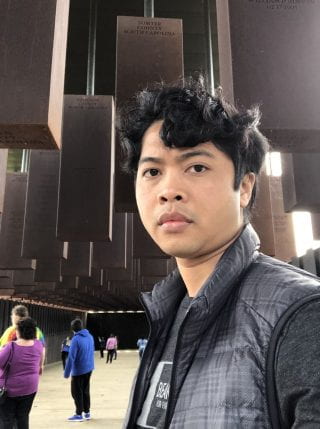 “It was an amazing experience during my stay in the United States,” said Dodi Siraj Muamar Zain, a student from Indonesia working on a Doctorate in curriculum and instruction. “For me as an educator, this trip gave me a precious lesson about the meaning of life and how we should make life meaningful. I could tell stories that I heard and saw during this trip to my students once I returned to my home country. I can tell them how precious education is from the story of nine young warriors from Little Rock who bravely struggled to obtain it.”
“It was an amazing experience during my stay in the United States,” said Dodi Siraj Muamar Zain, a student from Indonesia working on a Doctorate in curriculum and instruction. “For me as an educator, this trip gave me a precious lesson about the meaning of life and how we should make life meaningful. I could tell stories that I heard and saw during this trip to my students once I returned to my home country. I can tell them how precious education is from the story of nine young warriors from Little Rock who bravely struggled to obtain it.”
By telling his students these stories, Zain hopes that this will make them “more appreciative to their life which eventually encourages them to be a good member of society.”
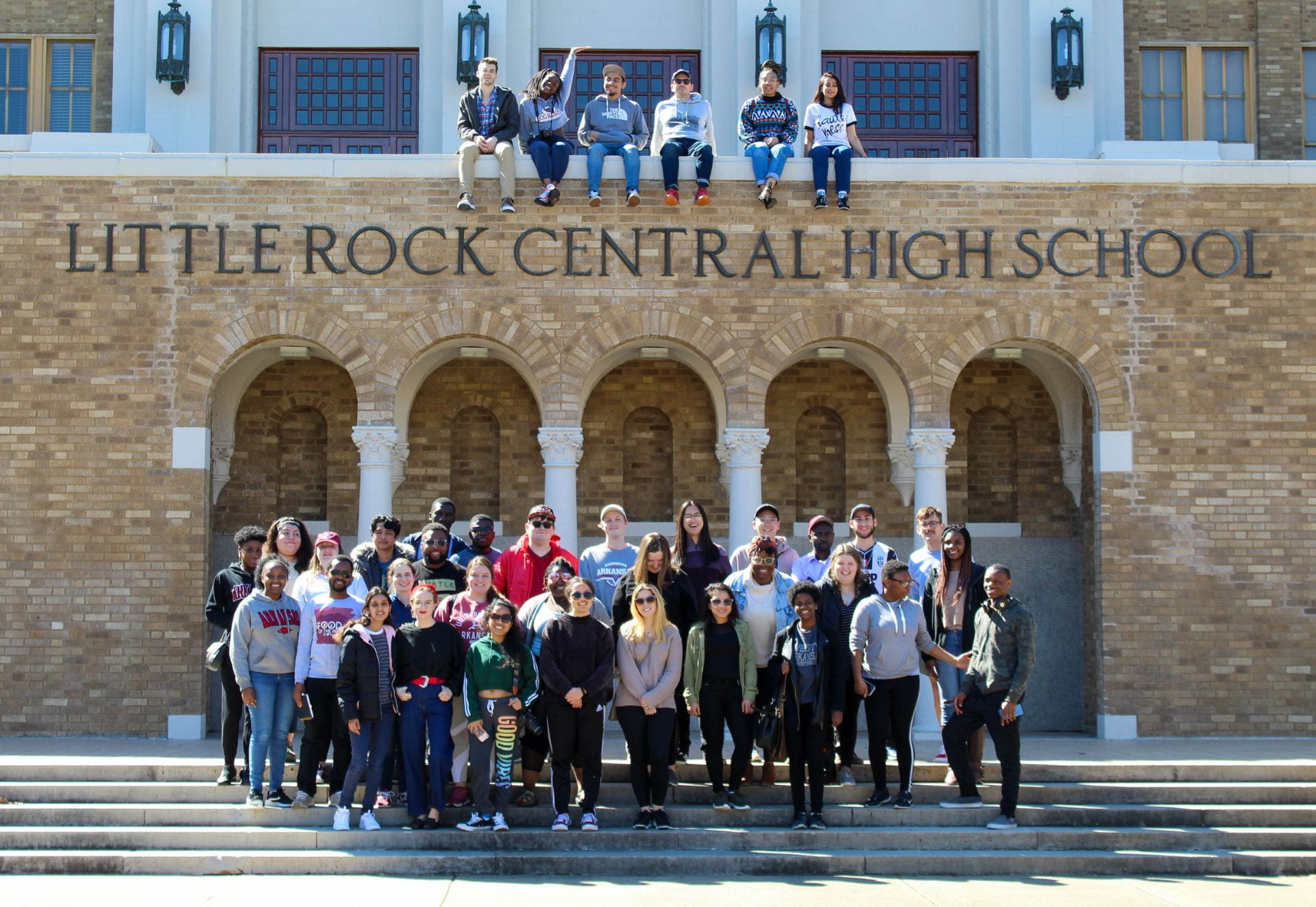
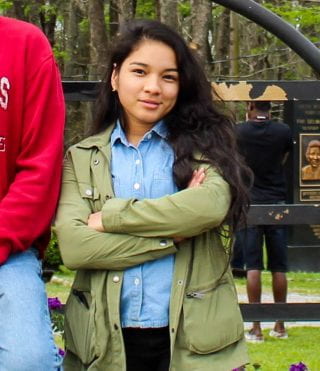 Shantal Sarmiento, an International student from Southeast Asia studying Industrial Engineering, who went on the trip said she had many misconceptions that were changed as a result.
Shantal Sarmiento, an International student from Southeast Asia studying Industrial Engineering, who went on the trip said she had many misconceptions that were changed as a result.
“Before this trip, I used to think that black people and news exaggerate discrimination. Racial discrimination is not something that I am used to, because where I am from people come from all ethnicities, and we do not judge anyone by their roots. Therefore, when someone said that black people are more likely to struggle, I thought that they were just being dramatic,” Sarmiento said.
What she experienced on the Civil Rights Bus Tour challenged her preconceived ideas and made her “feel like a new person.” “After listening to my partners on this trip and seeing the statistics showed in the museums, I realized that inequity is a real problem and I have to do something about it.”
Sarmiento believes that everyone could benefit from the Civil Rights Bus Tour.
“This trip is a great experience for every student and faculty member of the U of A,” she said. “I believe everyone should have the opportunity to discover history in such an interactive way.”
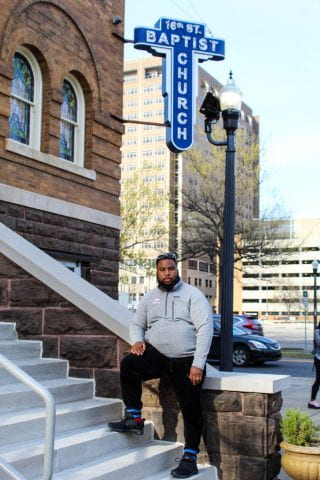 Adrain Smith, the director of mentoring and leadership for the Multicultural Center, spoke about how the trip came to be. The original idea of the trip was to have an opportunity to experience civil rights sites up close and personal. He said that it was important to “really have students engage in critical thought, and for them to have difficult conversations.” The trip was funded in part by sponsorships, the Multicultural Center, and the African and African American Studies program at the University of Arkansas.
Adrain Smith, the director of mentoring and leadership for the Multicultural Center, spoke about how the trip came to be. The original idea of the trip was to have an opportunity to experience civil rights sites up close and personal. He said that it was important to “really have students engage in critical thought, and for them to have difficult conversations.” The trip was funded in part by sponsorships, the Multicultural Center, and the African and African American Studies program at the University of Arkansas.
“Overall, what I saw was the impact that each student experienced differently. The biggest impact is that we have made progress, yet there is still so much to do,” said Smith, who along with two other Multicultural Center staff members, accompanied the students on the trip.
“We want students to think about ‘what can I do to assist in creating and working towards a much more inclusive society? How can I build community and how do I get out of my monolithic experience?’” Smith said.
When reflecting on the trip, Smith explained his desire to expand the program. “Personally, I got a great deal of satisfaction being able to provide the opportunity for students. To observe the personal grappling on the conversations and see it from day one to day five, it filled me with a desire to expand the program and to secure more funding for the continuation of the program,” Smith said. “This is the type of initiative that an institution should be providing for its students.”
The Multicultural Center is currently in the planning process to provide a smaller trip biannually. Smith said that this requires “a strong collaboration with other student affairs departments and academic affairs to provide a transformational educational experience for students. I would love to see this expanded into a for-credit class.”
Find out more about Multicultural Center and the services they provide, as well as upcoming events and how to get involved at https://multicultural.uark.edu/.


